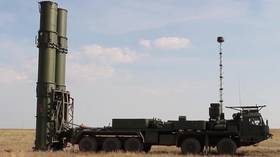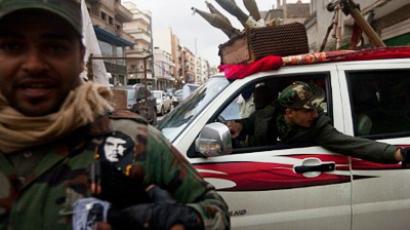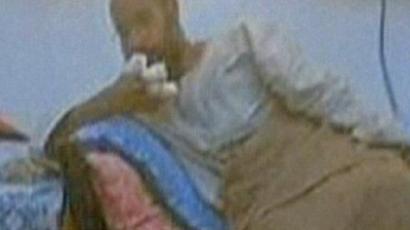Benghazi: From cradle to grave of the NTC?
The Libyan city of Benghazi, the birthplace of the rebellion that toppled Muammar Gaddafi, might also prove to be the deathbed of the ruling NTC. For two days, thousands of people have been protesting against the NTC and its chairman.
The rallies directed against the ruling National Transitional Council (NTC) erupted on Monday, following the council’s conference on Saturday, during which chairman Mustafa Abdel Jalil called for forgiveness for former Gaddafi loyalist fighters. Protesters gathered at Shajara Square, which was the birthplace of the anti-Gaddafi rebel movement back in February. Their slogans included “The NTC must quit,” “Jalil must go” and “The people want another revolution,” AFP reports. Apart from calling for more transparency and a quicker pace of reforms, they also demanded the publication of a full list of NTC members and expressed their anger over the NTC’s decision to pardon Gaddafi loyalists. Mustafa Abdel Jalil responded by calling for patience: “I want to reassure Libyans that a lot will be done. Be patient. The NTC will start its own website on which the list of its members and the activities of the NTC will be made public.” The NTC also issued a statement, in which it promised to decentralize power and to make Benghazi the economic capital of Libya. But the rallies continued on Tuesday, with approximately 5,000 people taking to the streets to demonstrate against the NTC. Bassem Fakhri, a political science professor from the University of Benghazi, was quoted by AFP as saying: “Jalil’s statement did not affect or touch anyone. Who is he to tell us this? He is not the president. Benghazi is not expecting only to be the economic capital. We want transparency, representation for women, decentralization, representation for youth and the full list of NTC members.” NTC member Fathi Baja also backed protesters saying their demands “reflect the beat on the streets of Benghazi and other eastern cities.”Mark Almond, a professor of international relations from the University of Bilkent, believes one of the main issues the demonstrators have against the new government is the redistribution of revenues from oil and gas, found primarily in the east of the country.“One big issue with the people of Benghazi and in eastern Libya is many of them felt that Gaddafi’s regime distributed too much of the income away from the oil and gas that was predominantly to be found in their region” Almond told RT “And they fear perhaps now that the new self-proclaimed government is also taking control of the revenues and distributing them as it sees fit rather than perhaps as the people who started the uprising hoped would be the case – that they would get the money. In the west the people with guns who overthrew Gaddafi in Tripoli and took control of Tripoli, of course, don’t want to see the revenues redistributed back to the east. They feel they are entitled to cash because they, after all, did the fighting is what they tend to say.”Patrick Hayes, a reporter for the online magazine Spiked, disagrees, saying east-west divisions don’t play such a big role now and that they were “put on ice by Western intervention.” He believes the real issue all Libyans have with the NTC is the council’s undemocratic and secretive nature. “I think it’s a very interesting development because the National Transition Council was never part of a democratically-forged Libya anyway” Hayes said in an interview with RT “They were never on the streets really, fighting with the Libyan people against Gaddafi. A lot of them, in fact, were in other countries at the time, waiting to almost be helicoptered in when it was safe enough to enter Tripoli. But what you had with the NTC from the start, and we’ve been talking about this for several months now, was a transitional council which is made up of, to the extent we know how it was made up, it was made up of Gaddafi cronies, people who were basically cherry-picked by the West as being suitable people to represent the Libyan people.”Hayes explained why many Libyans are angry with the NTC: “The Libyan people are saying, hang on a minute, these people don’t represent us. We don’t really know who they are. We have this Western-orientated National Transitional Council, which doesn’t yet represent the Libyan people and understandably the Libyan people are getting quite cross about this. They fought for democracy, a lot of them lost their lives for democracy and now effectively as the banners on the protests say, we came this far only to now be represented by former Gaddafi cronies.”
Stephen Brown, contributing editor from the FrontPage Magazine, believes Libya may be on the brink of another civil war.“People are very dissatisfied with the way things are going. They fought hard, especially in Benghazi. They don’t think they’ve been properly rewarded,” he told RT.“And now you are going to see the county fall apart into different areas of warlords, just like in Afghanistan.”














